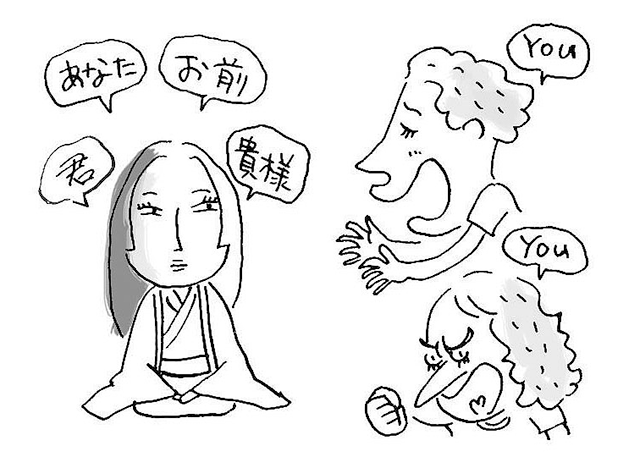Japanese have ‘Fertile’ Expressions

The endings of Japanese sentences make the Japanese language very versatile. For example, “will” can be translated as “deshou,” “darou,” “tsumorida,” “yoteidesu,” etc. Perhaps this is making Japanese more difficult to understand. But it also makes it possible to express subtle nuances to other people without placing emphasis on intonation or facial expression.
When Japanese is written, the outstanding features of the language become clear. There are basically two different writing styles in the Japanese language. The first is sentences ending in “desu” and “masu.” The other is sentences ending in “de aru.” You choose one of these when you write. “Desu”/ “masu” gives a soft and feminine impression. While “de aru” gives a masculine and positive impression.
It is not only sentence endings that enrich the Japanese vocabulary. Japanese has many words for an article. For example, “you.” In English “you” is generally used to signify anyone, but in Japanese there are many words for “you,” such as “anata,” “kimi,” “omae,” “kisama” “onushi,” etc. The word used depends on the relationship between the speaker and the listener. There are big differences in nuance between these words.
Since Japanese has an abundant vocabulary, it becomes possible to translate English into Japanese using different tones. Some years ago, the Ministry of Foreign Affairs translated diplomatic English text into Japanese using softer sentences with the aim of making it easily acceptable by the people, and it became an issue. Japanese is a deep language. In other words, it is a very intelligent and also very enjoyable language to use.
